What’s the inspiration behind Lil Bucks?
The idea for Lil Bucks started with a life-changing açaí bowl by the beach in Sydney, Australia. The reason this eating experience was so impactful was that the cafe used sprouted buckwheat seeds as their granola alternative. It had this satisfying crunch, unlike anything I’d ever eaten before. The best part--I felt amazing, energized and satisfied after eating the bowl. I didn't experience that sluggish feeling I would normally feel after eating sugary granola. Turns out the sprouted buckwheat on the bowl was providing satisfying protein, fiber, antioxidants and more, while being gluten-free. This kick-started an obsession with sprouted buckwheat. When I realized America wasn’t aware of the versatility of this super-seed, I decided to bring it back to the U.S. via delicious snacks and breakfast products.
On a macro level, the Lil Bucks brand is inspired by Australia’s amazing food culture--awareness of where food comes from, using simple and real ingredients, diverse dishes, and an openness to new ingredients and flavors. Healthy, REAL and tasty food isn’t just for the rich hippies--it is for everyone. At my favorite restaurant in Sydney, the eggs came from the chicken coop in the restaurant’s backyard, the bread from the bakery across the street, and they used a new vegetable I’d never heard of each time I visited. These ideas of local food and food awareness are percolating in the U.S. However, it will take longer to tackle our behemoth food industry and the practices within it. Our brand hopes to inspire that awareness and desire to eat healthy, delicious, REAL food, with a dose of the laid-back Aussie lifestyle and sense of humor.
 Emily enjoying an açaí bowl in Australia
Emily enjoying an açaí bowl in Australia
What brought you to Australia, where you had the life-changing açaí bowl?
After working three years at a digital marketing agency in Chicago, primarily on Hormel Foods and some of their brands (like SPAM!), I moved to Australia to work for a boutique digital marketing agency. Ironically, I ended up with a large Australian meat brand as well as some smaller food and beverage companies for clients. It was even more eye-opening to get a behind-the-scenes look at how major American and Australian companies were approaching their product development and communication. I learned how they were both similar and different. This experience certainly opened my eyes to what could be created with a new type of food company.
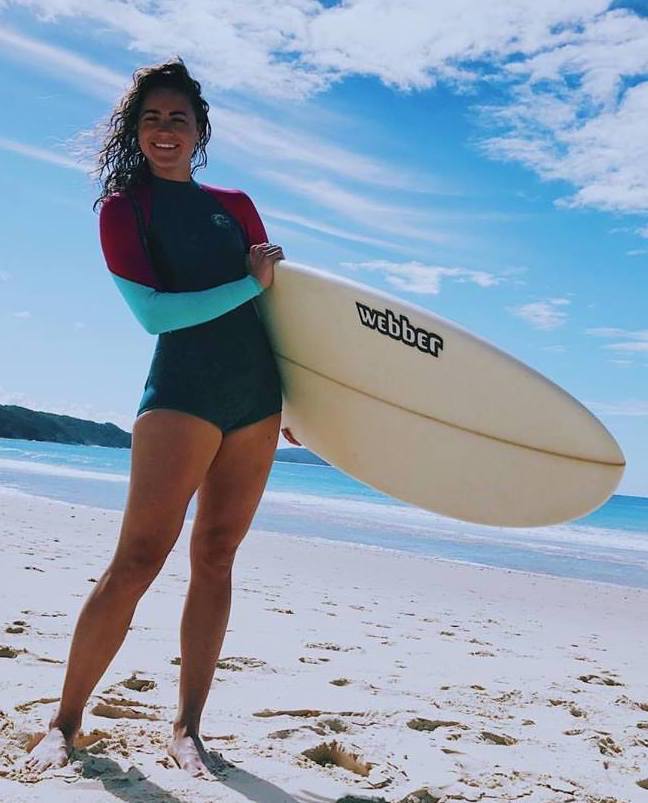 Emily surfing in Australia
Emily surfing in Australia
In order to bootstrap Lil Bucks, you also started a consulting company. Why did you take this approach? How did starting two companies at the same time work?
I am someone who learns by doing, and I didn’t know many people in my network who started a CPG business, so I knew nothing about raising money. I just jumped in and knew I would figure it out somehow.
I had always freelanced since graduating college. I enjoyed the hustle, the extra cash, and getting to work with small businesses--which contrasted with my work with Fortune 500 clients. While living in Australia and deciding to start the buckwheat business, I knew I needed a more flexible job to develop the product. I started building up a portfolio of clients until I had enough to support myself and build Lil Bucks. The marketing business blew up, getting to over six figures in less than a year. At one point, I had 24 clients--many in the food and beverage space.
It started off fun--working from exotic places like Bali, Nicaragua and Mexico, while designing the Lil Bucks brand, website and packaging in my free time. Once I settled in Chicago and was ready to launch Lil Bucks, things got crazy. I had the perfect skillset for startups, a digital marketing, web development + graphic design combo, and a strategic thinking background with the ability to implement technical tasks. Word got around and the marketing business blew up while I simultaneously prepared to launch Lil Bucks at a fitness festival in 2018. I did not know how to say no to clients because more clients meant more money for Lil Bucks. I ended up working 14-18 hour days, producing marketing work by day and Lil Bucks in a shared kitchen by night. 12 hours was a luxuriously short day. At just 25 years old, I went through a hardcore burnout phase three months after launching Lil Bucks, and barely accomplished anything as I tried to recover on a family vacation in July 2018.
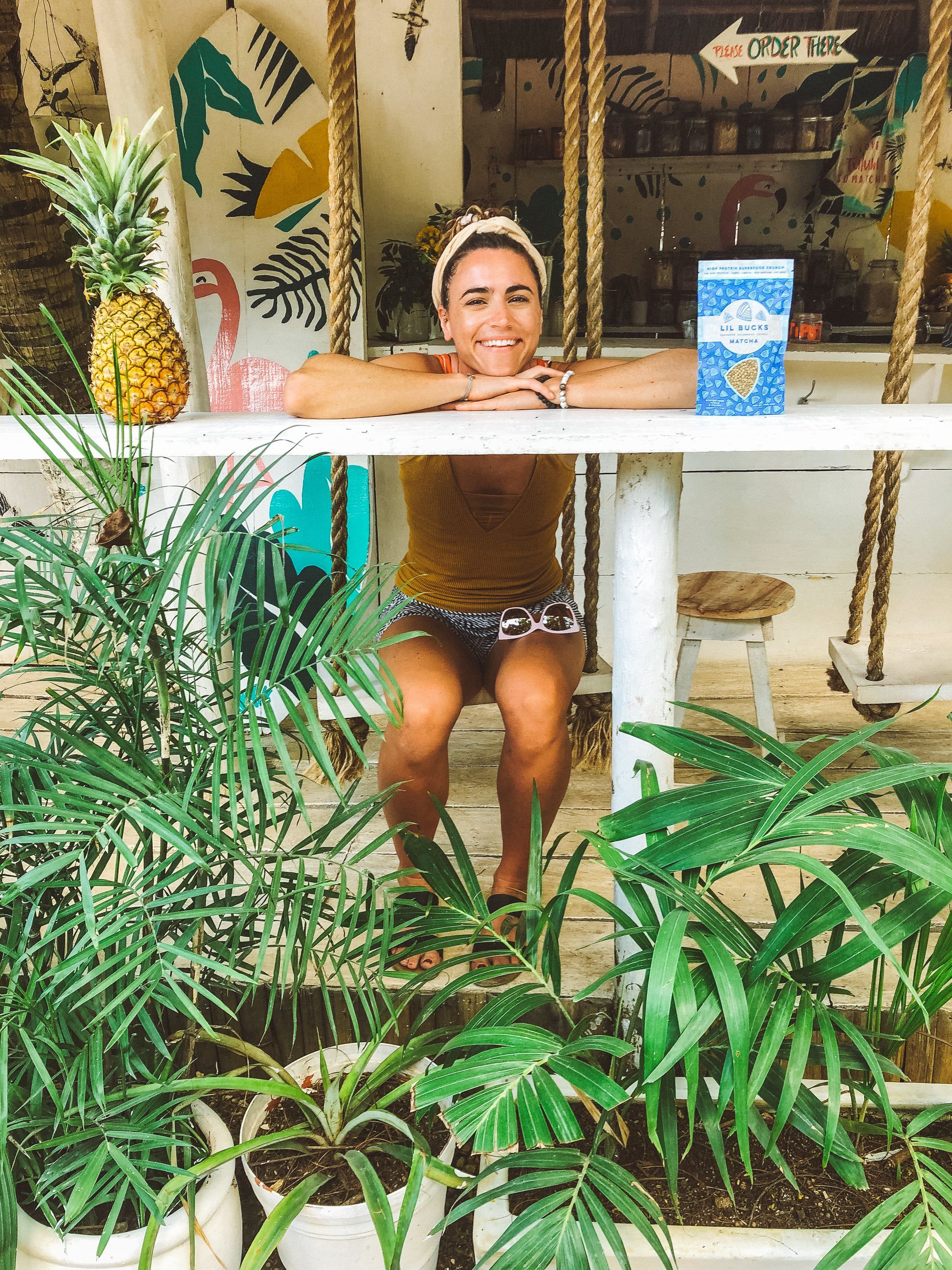 Emily while working remotely in Mexico
Emily while working remotely in Mexico
Taking care of one of our best assets, the Lil Bucks founder and CEO, was such an important lesson to learn early on in launching Lil Bucks. I learned to cope with insane demands, focus on priorities, say no, manage stress effectively, and take time for myself to prevent future burnouts. It took about a year to recover from the July 2018 burnout and now I’m very careful about how I spend time. Running two businesses for the first two years of getting Lil Bucks off the ground was insane, but I wouldn't trade it for the business lessons I learned early on. I know they will be invaluable in helping us reach our goals as a national food brand.
How did you first become interested in the food industry?
I have always been interested in healthy eating, especially finding healthy swaps for my favorite foods--like pancakes and ice cream! My biggest clients in the ad industry, from Kellogg’s in Australia to Hormel Foods in the USA, were big food brands, so my eyes were opened early on to how the industry operates. That deepened my desire to work for a brand trying to make the food industry better--a brand that aligned with my values and beliefs. I was always applying for jobs at companies like these, from Patagonia to RxBar. After getting denied from about 250 “dream companies", I ended up starting my own.
What is your favorite way to prepare sprouted buckwheat?
I love topping my smoothie bowls with sprouted buckwheat seeds. You can’t beat the addictively crunchy seeds on a cold, creamy smoothie bowl. I also love swapping in sprouted buckwheat seeds for oats in energy balls--it gives the energy balls a nice crunch which makes them much more satisfying (plus, more protein!).
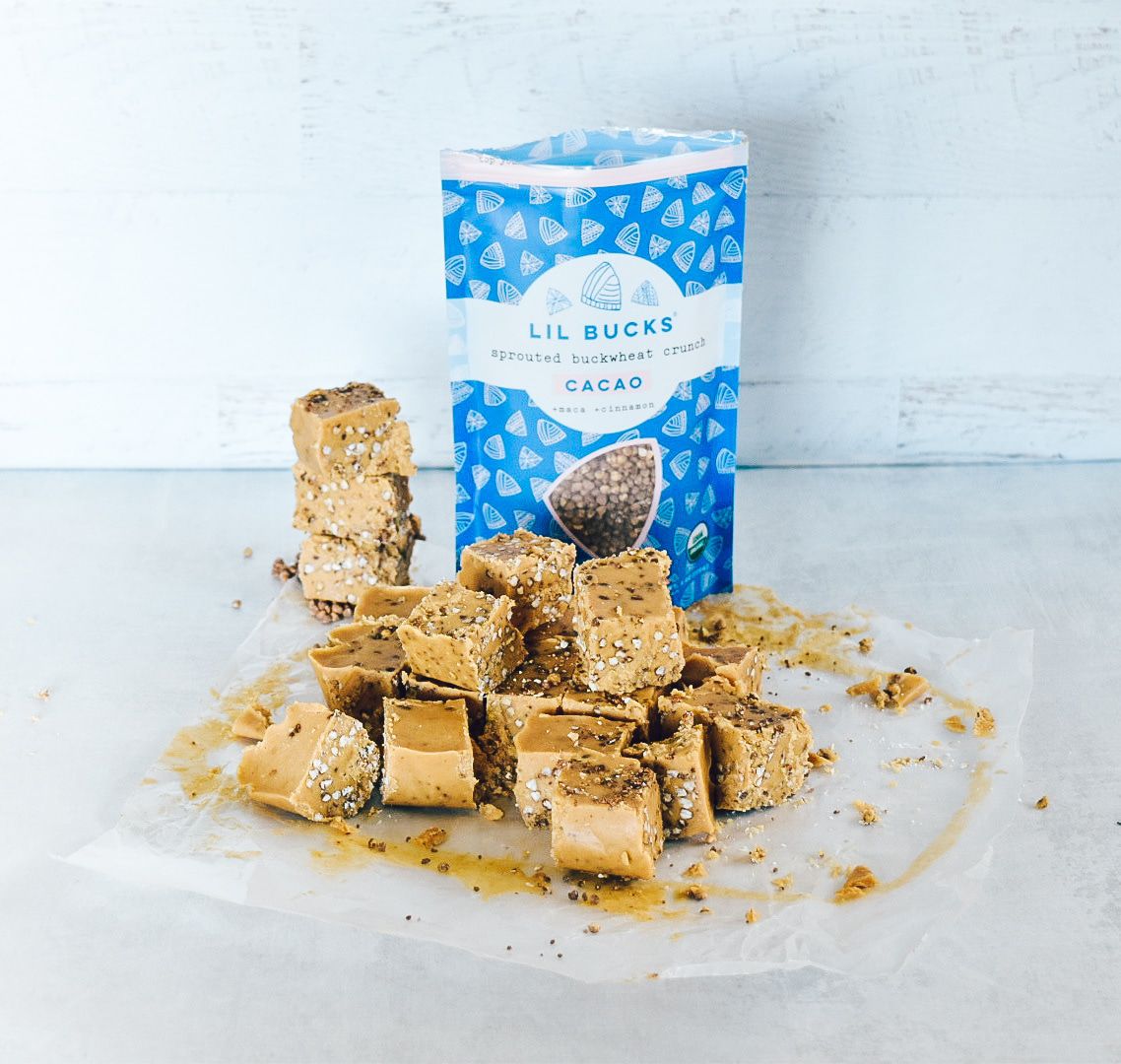 Peanut butter fudge topped with Lil Buck's buckwheat crunch
Peanut butter fudge topped with Lil Buck's buckwheat crunch
It’s unusual to be a female founder in the food industry, despite the fact that 93% of household purchasing is done by women. How do you see Lil Bucks influencing this dynamic?
The food industry is in dire need of diverse thinking from women and minorities. We’re building what will be a nationally recognized food brand, with values that align with the Global Alliance for the Future of Food. To build a brand that resonates with a majority of Americans, you need empathy and women are great for this.
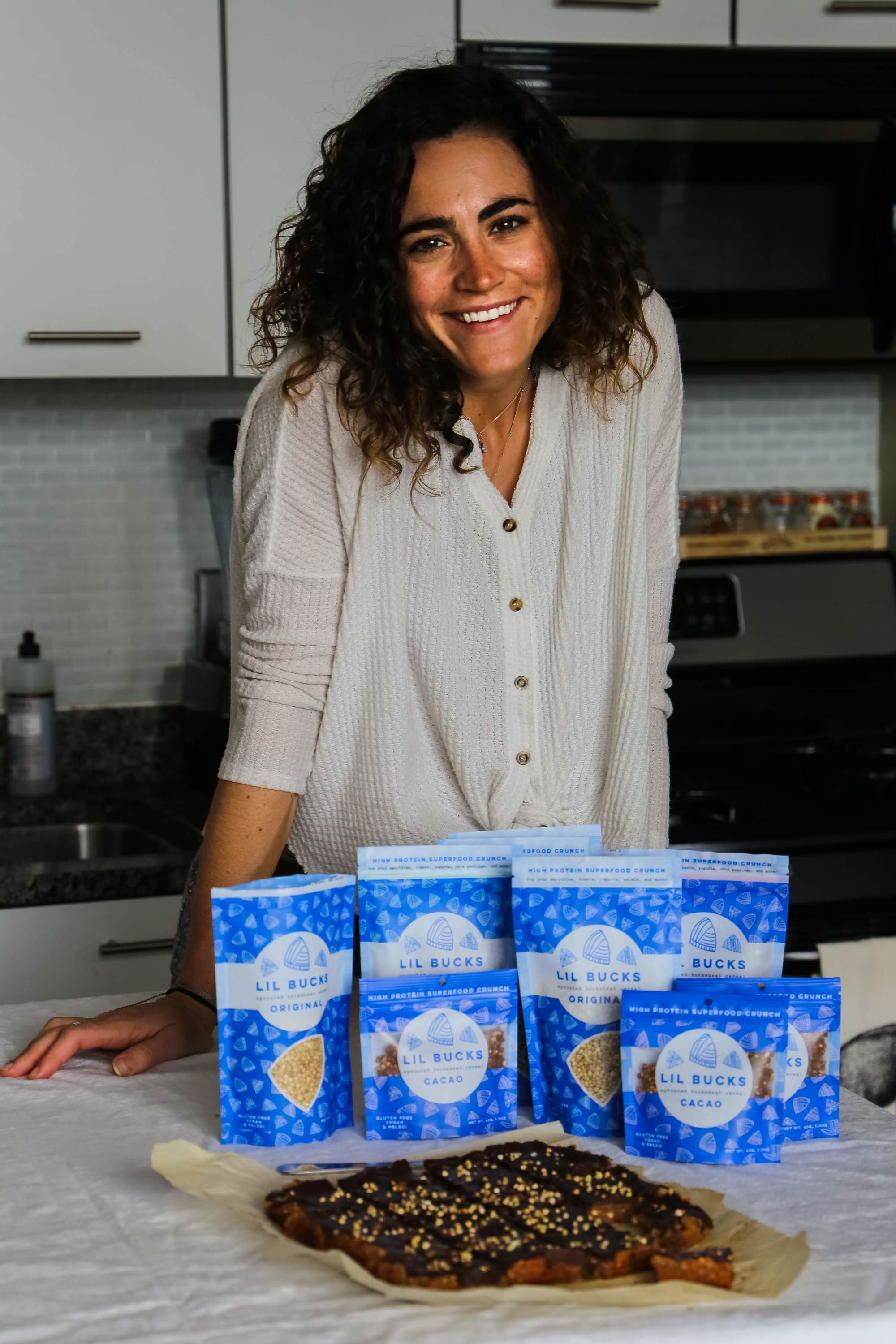 Emily with her line of Lil Bucks products
Emily with her line of Lil Bucks products
How are you creating Lil Bucks as a sustainable product?
We did a 1-for-1 campaign that ended January 15th. For every bag sold of Lil Bucks, we donated one to the Lakeview Pantry in Chicago. We want to make Lil Bucks more accessible for everyone --as healthy eating needs to become more accessible in the USA. Expanding distribution and getting prices down in the next 5 years is our focus. We also buy our buckwheat from the U.S., supporting improved soil health organic farms in North America.
What’s been the #1 (or two) top challenges you’ve faced while launching your company?
Timing was not on our side as the month we went into retail distribution and launched a new product line was when the pandemic first hit the U.S. I was on a plane to the industry trade show Expo West when I found out it was canceled, and craziness ensued. We launched in Whole Foods Midwest in March and launched Clusterbucks in April straight into Erewhon. We managed to maintain momentum, despite pivoting all sales and marketing plans due to the pandemic. We had to dial back projected growth for 2020, and achieved the goals we reset in April 2020 after restrategizing. I look forward to finally launching into the distribution we planned for last year this month (Southern California and Midwest retail warehouses with KeHE and UNFI).
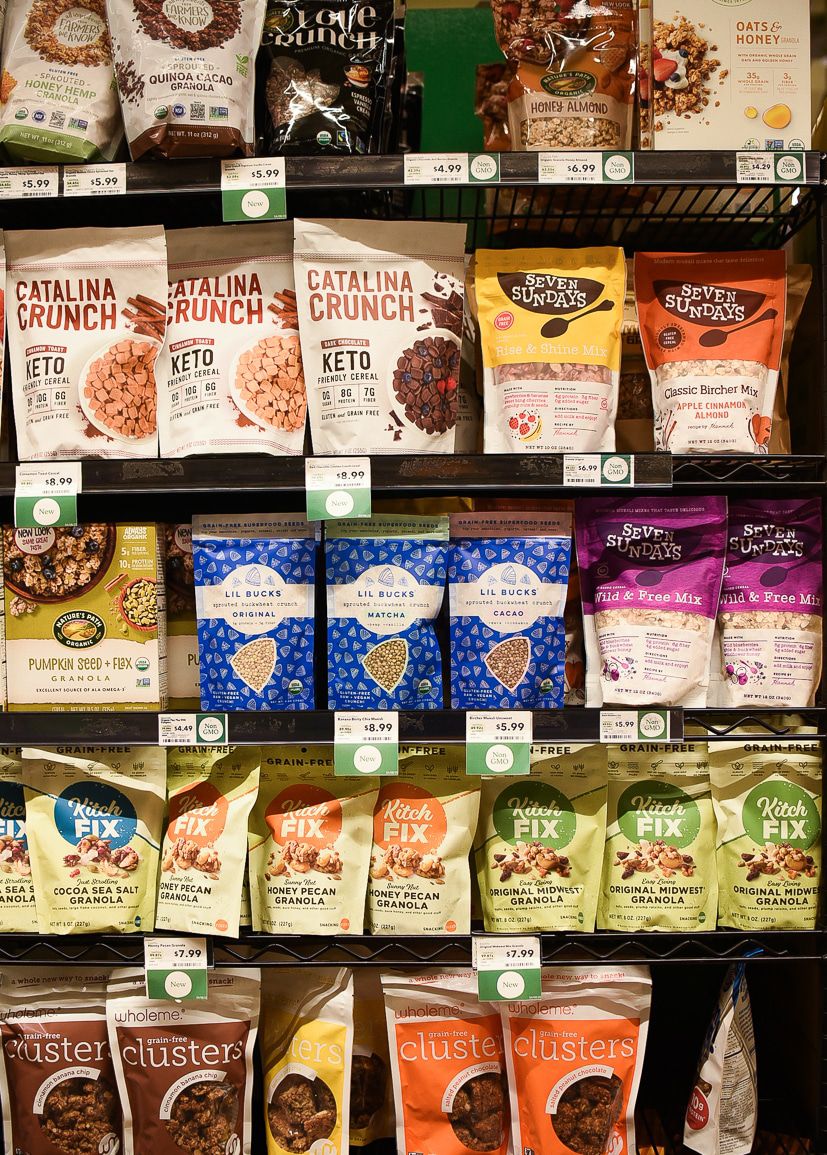 Lil Bucks at Whole Foods
Lil Bucks at Whole Foods
The pandemic exposed many problems in the way the food industry is set up for retailers and businesses. It allowed us to clearly see the path we need to take to grow sustainably in retail and e-commerce. The pandemic, in the microcosm of our business, has been a blessing in disguise. We got a taste of big retail with our Whole Foods launch, but bought some time to strategize our offerings and lead with our fast-moving snack line Clusterbucks in retail in 2021. It is simply a faster-moving category and brings a larger market into the buckwheat family more quickly. We also have gone back to focusing on my bread-and-butter, e-commerce, and we see a huge opportunity on digital platforms.
Educating consumers on sprouted buckwheat will be an uphill battle for the next few years. Even getting into Whole Foods in the Midwest, I knew we needed to go heavy on demos, in-person events near the stores, online campaigns, and mailing coupons to our customers. It’s not enough for us to have a nice placement with cool packaging touting numerous health benefits. People need to know what sprouted buckwheat is without us constantly being there to tell them. I trained 25 brand ambassadors to hit the Whole Foods Midwest stores when we launched there in March, but obviously we weren’t able to do many demos as the pandemic hit. So, we had to pivot our strategy to achieve strong velocities despite launching in the worst month in grocery history!
Have you learned anything new or surprising about yourself through this process?
I am better at cash flow management and creating cost savings/more margin than I ever thought I would be. Better yet, I enjoy it!
Why did you decide to raise from the crowd?
As a female founder, it is inherently harder to raise money. While the public is paying more attention to women and minority founders, it will still take a while to permeate the investing space and change deep biases people have towards supporting any business without a white, male founder. Republic democratizes fundraising and allows anyone to invest based on simply believing in the brand, business, founders and/or mission. This allows for individuals to raise businesses the public wants up, rather than just having the small group with the most money decide who gets to succeed (which is unfortunately still primarily males--not to say there hasn’t been any progress in the space).
What’s your team culture like?
Our team culture lives in accordance with the Lil Bucks brand values. We won’t cut corners on sourcing or nutrition for our bottom line. Plus:
- Everything we do will be done mindfully with our impact on the planet at the forefront.
- Our cheeky, Aussie-inspired brand helps Americans live a more balanced, "chilled out" and healthy life, while understanding where their food is from and helping to promote the consumption of more regenerative crops, like Buckwheat, in the U.S.
- We are a part of the Future of Food. We will be the change we want to see.
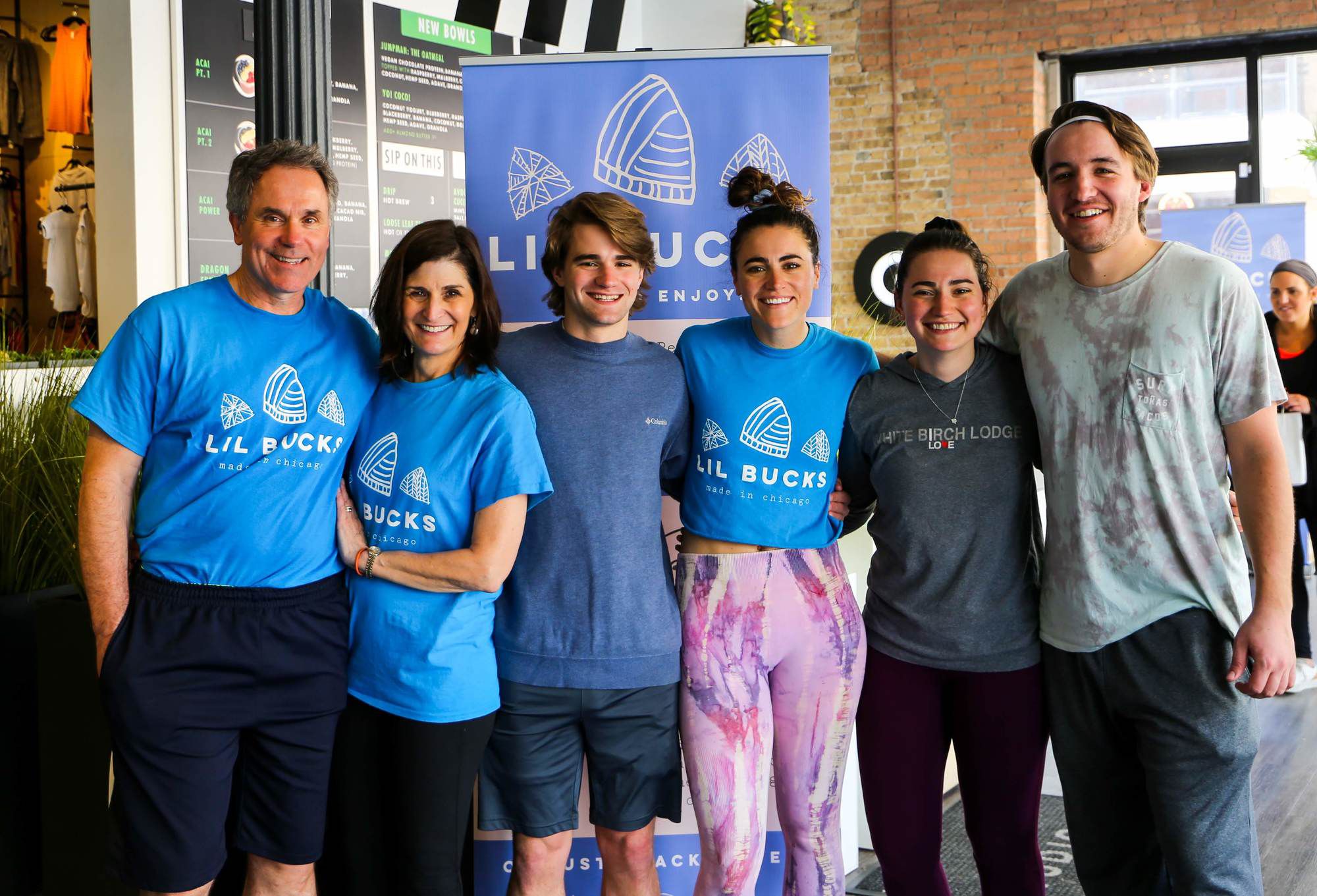 Emily with members of the Lil Bucks team at a birthday celebration in 2019
Emily with members of the Lil Bucks team at a birthday celebration in 2019
What is your superpower?
Graphic design and storytelling. The first is a heavily beneficial skill for a startup and has saved us tens of thousands in cost. Storytelling is hugely important as we build a top tier brand that connects with consumers for the next 5 and 10+ years.
What’s your kryptonite?
Logistics. My brain does not connect the dots of efficient transportation in ways I wish it would. It’s been a stretch to learn and manage, and we’re excited to bring on a consultant that’s going to bring a lot more efficiency and cost-saving to this area of the business.
Do you have any unusual routines or habits?
I practice my Spanish every morning. Traveling and experiencing other cultures is a big motivator for me, and for some reason reviewing my Spanish notecards puts me in an awesome headspace for the rest of the day.
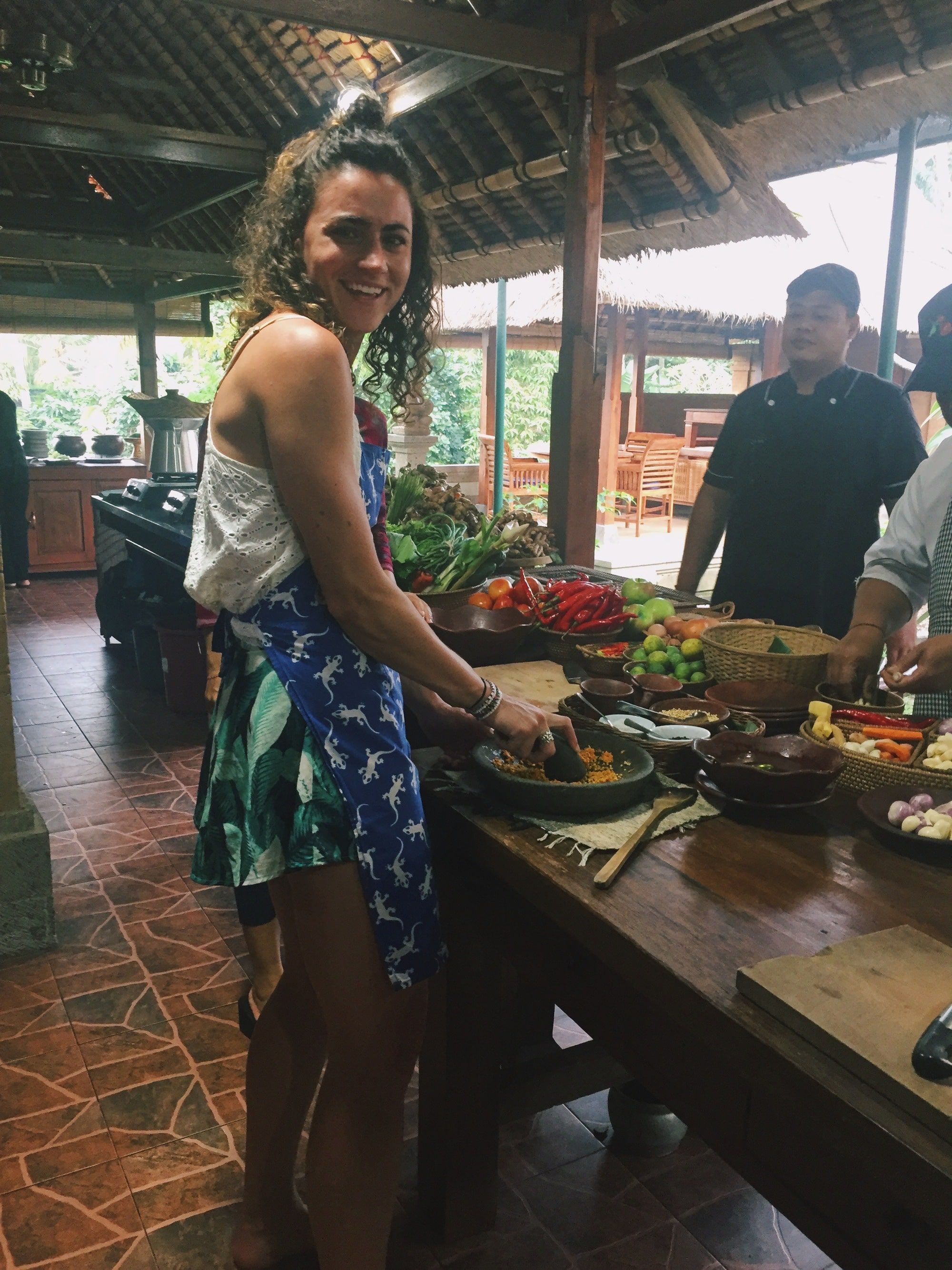
Do you have any other hobbies/things you like to do in your spare time?
I love outdoor activities. From surfing and snowboarding, to running and camping. I also love concerts and live music. I love photography and editing photos. Lastly, I love a nice grazing picnic with friends.
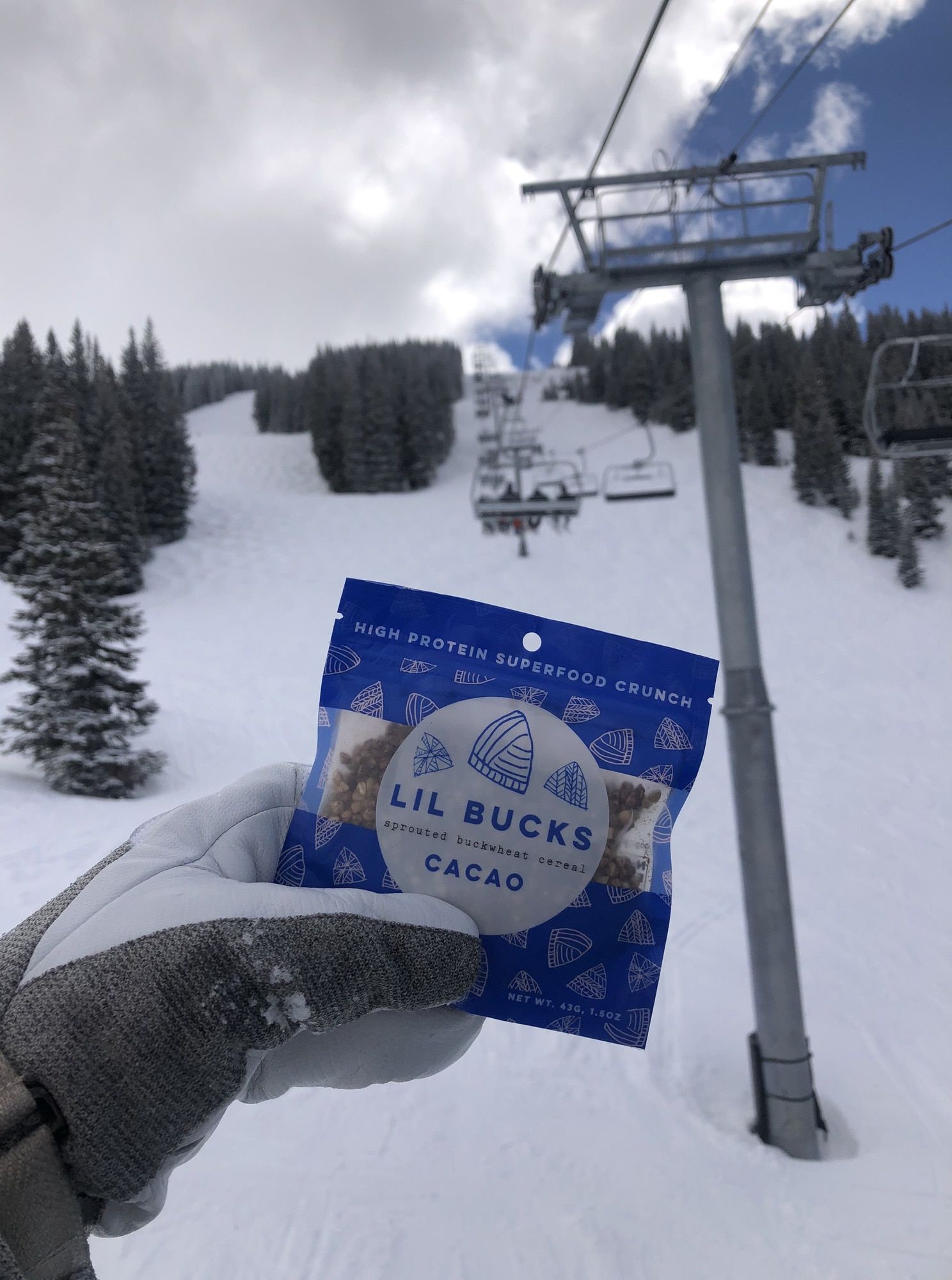
If you could give yourself one piece of advice 5 years ago, what would it be?
Five years ago I was still in my first job out of college, and I have siblings in that phase now. I feel like so many Millennials, including myself, lament over their first job not being exactly what they see/saw themselves doing. I would say, don’t worry so much about what you’re doing for your first job in your career. It might not align perfectly with your values and aspirations, but it’s teaching you the skills you need to go off and achieve your vision one day.
The grass is always greener, so just relax and be grateful for the opportunity to learn new skills and get paid for it.
What’s your experience been like as a female founder? Any advice for women looking to start their own company?
Find your COMMUNITY. Men can use community too, but they can also get away with going on their own, raising money and achieving big things. Women need to lift each other up, as we’re still not taken as seriously in the industry. Funding still mostly goes to men, so any knowledge or network you can share with other women will lift us all up, and ultimately come back to help you.
After a year and a half of struggling through Lil Bucks on my own, I realized many female founders in Chicago were all talking to each other, so why not get together? We started getting together for happy hours or lunches every so often and it was cathartic to oscillate between conversations about everything from boys to manufacturing problems. It was awesome to make some friends who understood what I was going through as a food and beverage founder. It brought me the sanity to keep going, and ultimately has helped the business grow faster.



 Oops! We couldn’t find any results...
Oops! We couldn’t find any results...






